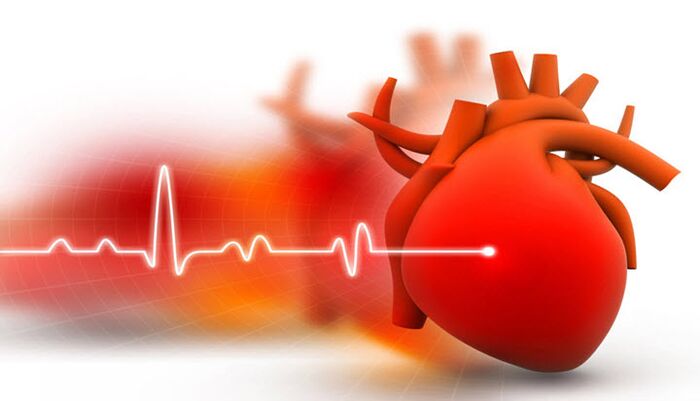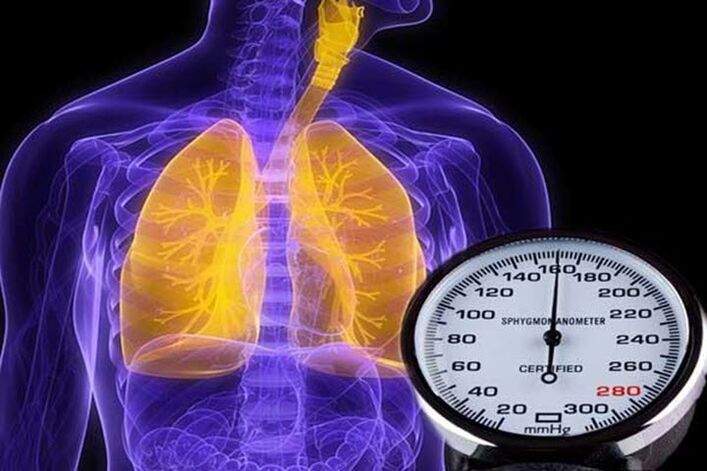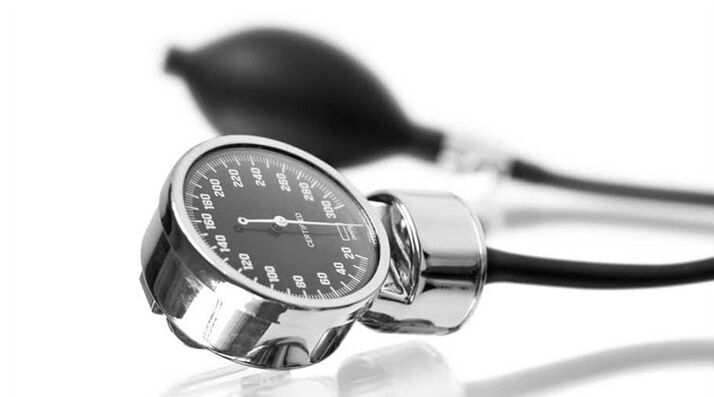According to medical statistics, hypertension is a frequently detected violation of the cardiovascular system. Developed hypertension has a negative effect on the vessels: it reduces elasticity, increases fragility. Such a process leads to internal bleeding. Often, persistently high blood pressure leads to the development of deadly medical conditions: ischemic heart disease, myocardial infarction, or stroke.
The early diagnosis of hypertension, timely treatment according to indications helps patients avoid changing manifestations that cause significant deterioration in health indicators or lead to death. People forty years of age and older should regularly monitor their blood pressure readings, measure their blood pressure at home, and seek medical help if other symptoms of the disease are detected.
Causes of high blood pressure
What can cause high blood pressure in a person? What factors can stimulate its progress? Such questions are still relevant, they are asked by doctors by people who are concerned about the state of their health. Sustained high pressure values can cause certain changes in the functioning of the human body. The following diseases are affected:
- the condition of the vessels is accompanied by atherosclerosis;
- heart failure;
- Diabetes;
- Gout;
- rheumatoid arthritis;
- kidney disease.

Other factors contribute to the development of hypertension. Causes of the disease are related to:
- genetics: the disease is most likely to occur in children whose parents have been diagnosed with hypertension;
- age (over 45) and sex (prevalence is higher in males);
- overweight and obesity arise due to many causes (dysfunction of the body, poor exercise, eating a lot of animal fat, salt, often eating too much);
- skull and brain injuries;
- cholesterol level is significantly higher than the norm;
- hormonal changes in the female body during menopause;
- alcohol abuse, smoking, addiction to caffeinated beverages;
- complications after infectious or viral diseases;
- Skip the walk in favor of staying indoors without fresh air.
High blood pressure accompanies patients for whom emotional instability is the norm. Psychological discomfort, an attack of aggression or rage, stress, personal life tragedy increases the value of the indicators.
Classification and stages of the disease
Two methods are used to classify high blood pressure problems - by etiology (cause it occurs) and by degree (stage) of development.
In a situation where it is not possible to determine the exact nature of high blood pressure, the doctor will announce the diagnosis of primary (basic) hypertension. This is the most common disease, observed in 95% of patients. The remaining 5% of people have secondary disease, which is an additional manifestation of other diseases, requiring treatment.
The three stages of the process will differ in their symptoms and severity: mild, moderate, and severe.
Mild hypertension is characterized by an increase in blood pressure within the range of:
- systolic blood pressure between 140 and 159 mm Hg. st;
- diastolic blood pressure between 90 and 99 mm Hg. Art.
The course of the disease at this stage is not as complicated as that of the internal organs, which often occurs without obvious symptoms.
With moderate disease, blood pressure values are in the range of 160–179 / 100–109 mm Hg. Art. The patient's heart and kidneys begin to be damaged, the state of the retina changes, forming atherosclerotic plaques in the blood vessels. In most cases, the functional transformations occur inconspicuously.
Severe third-degree hypertension combines diagnoses of the heart, brain, organs of vision, vascular system, and blood pressure readings above 180/110 mm Hg. Art. High risk of hypertensive crisis

Characteristic symptoms
High blood pressure in the early and middle stages can cause no symptoms, which is a risk factor for patients. The main symptoms that indicate the development of a medical condition are headache and dizziness. They accompany patients often and for a long time, occurring due to constriction and narrowing of cerebral blood vessels. Additional signs are general weakness, fatigue, nausea, a feeling of tinnitus, and a veil before the eyes.
A person with high blood pressure feels other symptoms of high blood pressure:
- decreased vision, feeling that the eye is crushed;
- frequent nosebleeds;
- increased intracranial pressure;
- short-term loss of consciousness;
- emotional instability, mood swings;
- develop insomnia;
- physical activity causes severe redness of the facial skin;
- vomiting without a nutritional cause;
- pulse and tachycardia;
- changes in memory, its deterioration;
- significant swelling in extremities, face.
Signs of high blood pressure in the development of severe disease are accompanied by complications of the heart and blood vessels: heart failure, arrhythmia, angina pectoris, myocardial infarction. Symptoms of hypertension are associated with kidney failure, altered blood supply to the brain, cerebrovascular accident, stroke.
The symptoms of hypertension can appear in a patient in many different combinations, with different manifestations: stable, strong, one-time. A special feature of the disease is that the patient has high blood pressure.

Diagnose
There is sufficient evidence to examine the entire patient in the case of suspicion of the development of hypertension in him three cases of increased pressure indicators within a month. This symptom cannot be ignored.
Patients should take measurements independently with the manometer several times a day and record the results. In the setting of a medical facility, diagnostic methods such as daily blood pressure monitoring are used. The devices record pressure values during the day (15 minutes) and at night (twice an hour).
To identify changes in body functions, clinical blood and urine tests are indicated for the patient. Indicators of cholesterol, protein, potassium, calcium, glucose, hemoglobin concentration, lipid spectrum are important to diagnose the disease.
The presence of characteristic signs of high blood pressure and the development of hypertension is indicated by improper functioning of the heart muscle. To study it, the following methods are used:
- auscultation of the fetal heart - with the help of acoustic glasses, the sounds produced by the organ are heard, the rhythm of its work is observed;
- ecg - decoding of an electrocardiogram taken from a patient that allows a detailed assessment of the functions of the heart over a certain period of time;
- echocardiography and diagnostic echocardiography detect defects of the myocardium and valves, allowing to correlate the sizes of the atria and ventricles;
- Doppler study helps to evaluate the state of the vessels;
- angiography - the result of monitoring informs about changes in the walls of the arteries, their damage, the location of cholesterol plaques.
If hypertension is suspected, an orbital examination, ultrasound diagnosis of the kidneys and renal arteries, adrenal glands are prescribed.

Therapeutic measures
Treatment of hypertension involves the use of medications that can maintain near-normal blood pressure. In the event that a secondary form of pathology is formed, therapy consists in eliminating the disease, the root cause of the increase in pressure in the patient.
List of drugs
Eliminating high blood pressure values will help to take the medication exactly as directed by your doctor. Grade 1 hypertension does not require medical treatment, patients are recommended to change their lifestyle and eating habits. Moderate and severe forms of the disease must be controlled using the following classes of drugs:
- diuretics (thiazides) contribute to the natural withdrawal of fluid accumulated in the patient's tissues, reduce swelling, which leads to an increase in vascular circulation;
- beta-blockers that regulate heart rate;
- sartans - a single dose of pre-administration can normalize blood pressure, keeping the results obtained for a day;
- calcium antagonists that regulate heart activity, prescribed for severe angina attacks, arrhythmias;
- ACE inhibitors dilate blood vessels, preventing their constriction;
- Alpha-adrenergic blockers improve the condition of peripheral vessels.
The doctor prescribes a certain drug or a combination of them for each patient, taking into account the patient's general condition, comorbidities.
First aid at home
Cases of uncontrolled hypertension in hypertensive patients are not uncommon. With a sudden worsening of the condition, relatives are advised to call an ambulance immediately. Before she arrives, the following steps should be taken:
- eliminates panic in hypertensive patients, calms the mind: a stressful situation enhances blood circulation, increases pressure;
- the condition can be improved by taking herbal sedatives (Corvalol, motherwort, valerian);
- it is important to fit a person comfortably, he should sit in a comfortable position, lean on, relax;
- it is necessary to apply a cold compress to the forehead, while the leg should be warm (a heating pad or a mustard patch can be used);
- need to take the medicine urgently as recommended by the doctor;
The first aid process is accompanied by the dissection of blood pressure readings (every 10 minutes), the measurement results must be recorded in writing, then the sheet must be handed over to the doctors.
General Prevention Tips
Prevention of hypertension includes a series of measures. Doctors advise to change lifestyle, diet, use folk experience to normalize the disease state.
The medical establishment will point out the particular harm to hypertensive patients of alcohol and smoking, and advise them to give up. Moderate physical activity, leisurely walks in nature, light work.
Improvement in the patient's condition contributes to the transition to a special diet. Should avoid pickles and smoked meat, fried food, fatty meat, should not eat fresh bread. Vegetables, fruits, herbs, diet meats and dairy products, grains (rice, buckwheat), legumes should be the main ingredients for the new menu. Salt, sugar and fluids should be limited by the patient.
Long known folk remedies will not allow the pressure to rise. Infusions and decoctions, based on medicinal herbs, bee products, vegetables or nuts, and other ingredients, are selected individually in the required proportions.





























